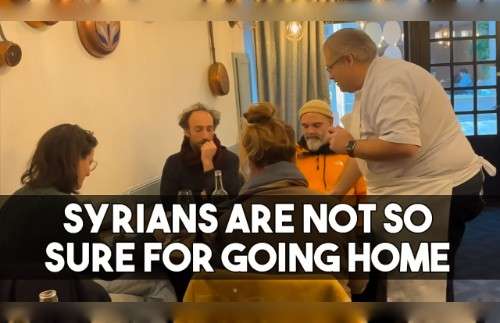Pizaro Gozali Idrus and Dandy Koswaraputra/Jakarta

None of the four people who were killed in a case that implicated six Indonesian soldiers in Papua province had links with rebels, as police claimed, a leading human rights group said Friday in releasing findings from its own investigation.
A 17-year-old boy was among the victims whose mutilated bodies were found after the killings last month in Mimika Baru, a district in Mimika regency. According to the investigation by rights advocacy group KontraS, its findings contradicted allegations by the police that one of the four slain people had ties to a Papuan armed separatist group.
KontraS investigators went to Mimika last week and talked to the victims’ relatives as well as police, military investigators and hospital staff.
“[The allegations by police] contradict the statements given by the families which were supported by evidence,” KontraS deputy coordinator Rivanlee Anandar said during a press conference in Jakarta.
The KontraS investigation found “no proof” that any of the victims “were involved in the separatist movement,” Rivanlee said.
Ten people have been named suspects in the murder case, including an army mayor, a captain and four privates. The six army personnel have been arrested, while three of the civilian suspects are in police custody. A tenth suspect is at-large.
The Papua region, at Indonesia’s far-eastern tip, has been the site of a decades-old separatist insurgency where both the Indonesian security forces and rebels have been accused of committing atrocities against civilians.
Police had also alleged that the killings in Mimika Baru were linked to an illegal arms purchase and that the motive was “economic.”
Papua police spokesman said that the suspects were posing as gun runners and the victims came to them with 250 million rupiah (U.S.$16,500) in cash in order to purchase the weapons.
According to Rivanlee, one of the victims, Arnold Lokbere, was a church caretaker, while the other victim, Rian Nirigi, was a village chief and church administrator in Nduga regency.
Another victim, Leman Nirigi, worked as a boat skipper and the fourth victim, Atis Tini, was a 17-year-old boy, a minor under Indonesian law, Rivanlee said.
Rivanlee said the police’s allegation that the victims tried to buy firearms was not backed up with evidence because a homemade rifle, which was cited as evidence, was missing. Police investigators had said that the suspects threw the gun into a river along with the victims’ bodies.
Papua Police Public Relations Commissioner Ahmad Musthofa Kamal said the investigation was ongoing.
“Where 250 million rupiah in cash came from is still being investigated,” Kamal told BenarNews.
Michael Himan, an attorney for the victims’ families, said their relatives, including four people who are students in Jakarta, were now living in fear.
“It’s difficult for them to study and go about their activities because of the trauma and fear,” Himan told BenarNews.
Himan said the families needed psychological help to deal with their grief.
“I hope that the families can get justice and the perpetrators be given appropriate punishment, including dismissal from the military,” he said, adding that the military had yet to issue an apology to the families.
Army spokesman Hamim Tohari said that the suspects from the armed forces’ branch who were in custody would face a military tribunal.
“If the results of the investigation require that they be tried in a civilian court, it is up to the Supreme Court to decide,” he added.
Former army officer on trial
Meanwhile earlier this week, a retired army major went on trial on charges stemming from an incident in which Indonesian soldiers fired shots at protesters and killed four civilians in Papua’s Paniai regency in December 2014.
The defendant, Isak Settu, is accused of failing to stop his subordinates from using firearms and live bullets against the protesters, said Ketut Sumedana, a spokesman for the Attorney General’s Office.
“The defendant … did not take appropriate and necessary action to stop his men from shooting and engaging in violence that resulted in the death of four civilians,” the indictment read.
The trial, held in the South Sulawesi provincial capital of Makassar, was adjourned until Sept. 28. It is based on a human rights tribunal law, which parliament passed in 2002. The law allows the creation of ad hoc courts to try rights abuse cases, including those that happened before the law was passed.
Isak’s attorney, Syahrir Cakari, said his client was a liaison officer who was not in command of the troops at that time.
“The indictment is false because Isak was not a field commander,” Syahrir told BenarNews.
The protest in Paniai flared up after soldiers had assaulted local youths for reprimanding one of the soldiers for driving carelessly.
After President Joko Widodo ordered an investigation into the 2014 killings, the National Commission on Human Rights, which investigated them, described the act as a gross violation of human rights.
A member of the commission, Choirul Anam, said he hoped the ad hoc human rights court in Makassar could deliver justice.
“We hope that the court can reveal the chain of command and responsibility,” he told BenarNews. “This is important for the sake of justice for the victims and the Papuan people.”
In a statement released Friday, Human Rights Watch said the trial was “an important opportunity to provide a measure of justice and compensation to the families of the victims.”
“The Indonesian authorities should not squander this important opportunity to finally hold someone accountable for crimes committed during the Paniai massacre,” said Phil Robertson, deputy Asia director for the New York-based global watchdog group.
“This should be the start of further prosecutions of serious human rights abuses in Papua, and not a ‘one-off’ effort to close the book on Paniai,” he said.
Nazarudin Latif in Jakarta contributed to this report.
Copyright ©2015-2022, BenarNews. Used with the permission of BenarNews.













